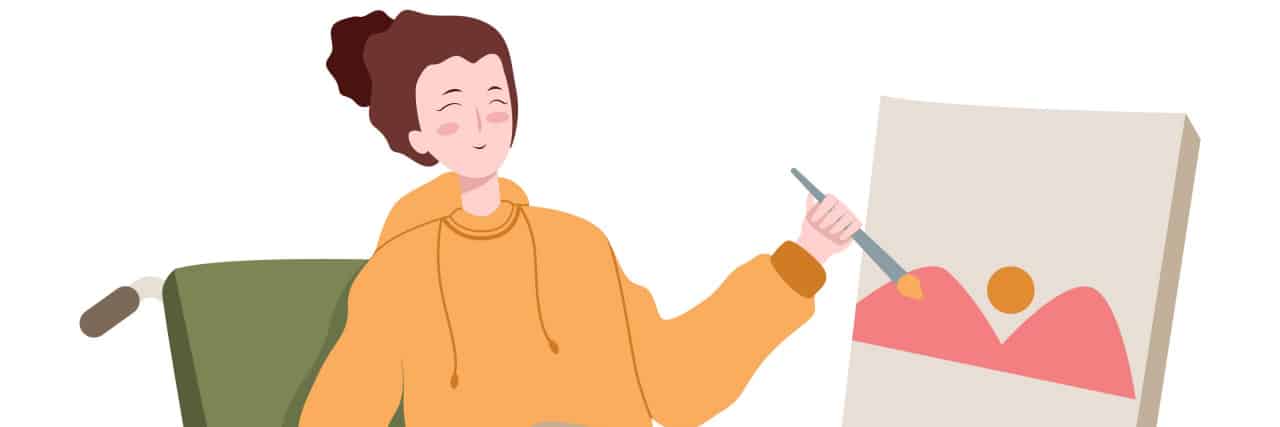Like the rest of the world, at the start of the COVID pandemic, my world was turned upside down. Life as I knew it would be over.
Little did I know that due to the COVID pandemic, I would meet someone who would completely change my life and my outlook as a woman with a disability. After 12+ years of mental health treatment for depression, I finally met a professional who could completely understand my life experience.
For the first time in my life, I met a provider who also has a physical disability.
At first, I didn’t know how to approach this provider. She was an intern doing a virtual art therapy stint from over 1,000 miles away. I met her in a group art therapy setting. This person uses a wheelchair and I’m ambulatory. We have different conditions and different life experiences.
But still, we were able to connect on a deeper level than I have regarding my disability with any other provider.
While I was able to hide my disability as a child, the intern could not. While she could have chosen to “pass” during the virtual internship, she chose not to. With virtual sessions, we could only see from the shoulders up anyway and therefore no one could see the wheelchair.
I am forever grateful that this intern disclosed her disability when she didn’t have to. I don’t know who brought up the topic of disability first, but I’m guessing it was her, knowing how shy I was about the whole situation.
Over the year of her internship, our conversations about disability evolved, and I soon learned to put words to what I was feeling. Through the art prompts, I was able to create visuals as to how I felt and then reflect on my art. It was amazing to have someone finally understand my experience.
After a year or so (if I remember right), this intern graduated and no longer attended our groups. I was sad to see her go, but I knew I had grown during her internship and I was better at articulating my experience with a disability. After all this support, I would have to continue to grow on my own.
To my surprise, several months after she left, this now art therapist made her way back to our group via an externship. I was excited to have her back and show her how much had changed in my life since our first year together. I was better at advocating for disability rights and I had started playing adaptive sports – something I could never have done had I not been as comfortable being disabled as I was.
Now, after all the work I’ve put in with my own journey toward disability acceptance, I am able to pass on my experiences and the words I’ve learned to describe them with others. Currently, I’m in a different group therapy setting where there is an individual with a disability who is just starting their path to disability acceptance.
While I still have a way to go for me to reach full body acceptance and body neutrality, I know I wouldn’t be where I am now without meeting a mental health provider with a disability.
Getty image by bakhtiar_zein.

